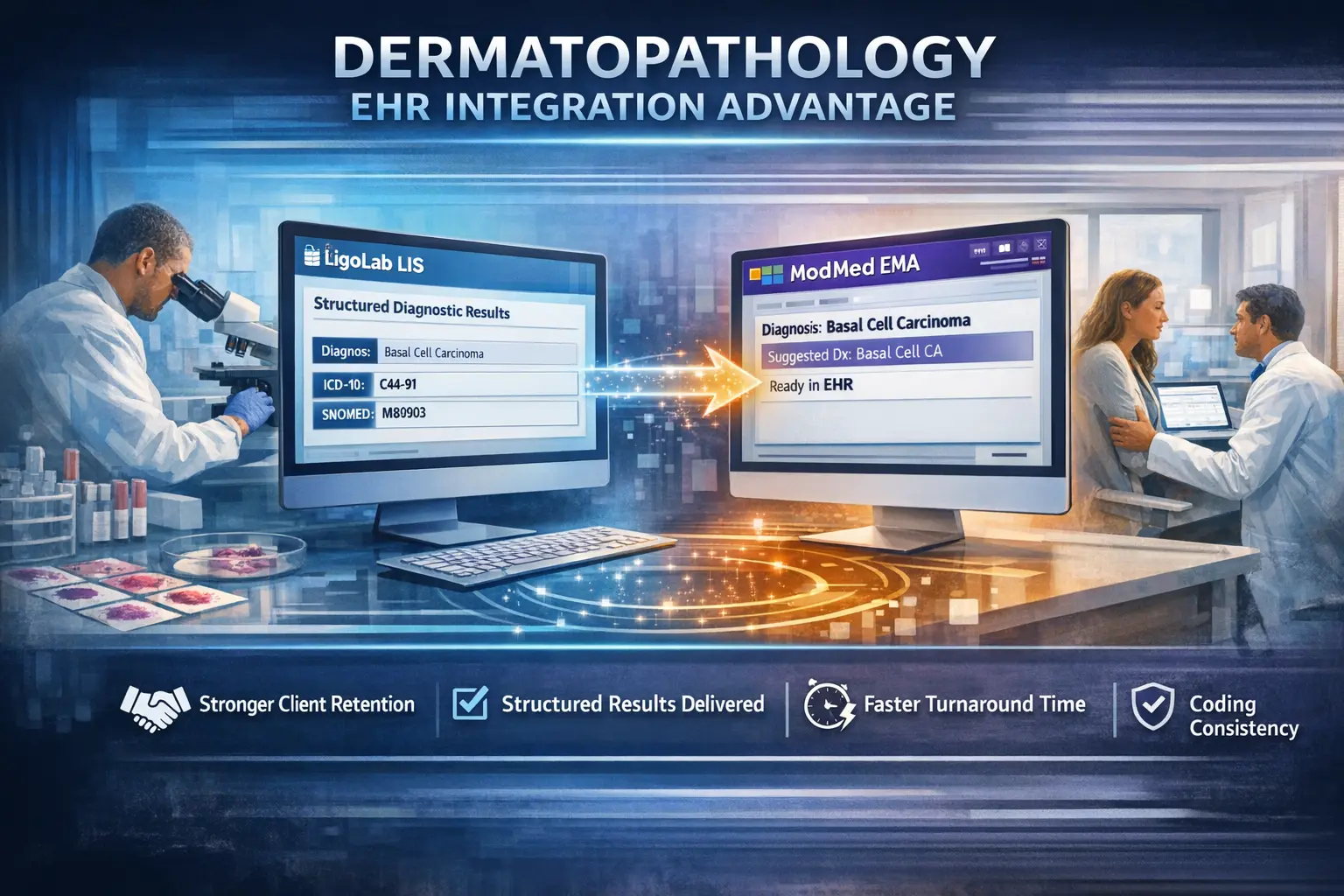Blog
The FDA’s Final Rule on LDTs and What It Means for Independent Medical Labs (Updated)
January 2, 2026
Article Update: This article (updated from its original April 2, 2025, publication) revisits the fate of the LDT final rule and what’s next for clinical labs and pathology groups.
LDT Regulation in 2025: The FDA Final Rule That Was Stopped, and What Comes Next for Clinical Laboratories
In 2025, the FDA's attempt to implement a final rule regulating Laboratory Developed Tests (LDTs) as medical devices was halted by a federal court ruling in March, which found the agency overstepped its authority; the FDA then officially rescinded its rule in September 2025, reverting to the previous regulatory approach, leaving LDTs primarily under CMS oversight via CLIA, which was a significant win for clinical laboratories and patients.
What follows is an outline of the current regulatory landscape (with a focused look at what remains unresolved and uncertain for clinical laboratories), along with a deep dive into how modern laboratory information system (LIS) software can ensure compliance with any future regulatory requirements.
What Happened with the FDA’s LDT Final Rule
In May 2024, the FDA published a final rule intended to bring laboratory-developed tests (LDTs) under the same regulatory framework as other in vitro diagnostics (IVDs), meaning clinical labs and pathology groups would have to comply with medical device requirements, including premarket review.
However, on March 31, 2025, a U.S. federal district court (Eastern District of Texas) vacated that final rule, ruling that the FDA had exceeded its statutory authority by attempting to regulate LDTs as medical devices under the Federal Food, Drug, and Cosmetic Act (FDCA). The court held that LDTs are services regulated under the Clinical Laboratory Improvement Amendments (CLIA), not devices subject to FDA device authority.
The FDA declined to appeal the court decision and, in September 2025, issued a new final rule that reverted the regulatory language to the pre-2024 definition of in vitro diagnostic products. This effectively rescinded the 2024 LDT rule, restoring the status quo where the FDA continues to exercise enforcement discretion rather than enforce mandatory device-style regulation for most LDTs.
Current Regulatory Landscape
As of the latter half of 2025, the FDA’s formal attempt to regulate LDTs like medical devices has been abandoned, and LDTs are not currently subject to the phase-in device requirements proposed by the 2024 rule. Regulatory oversight is primarily under CLIA (administered by CMS), not FDA device premarket requirements.
What Remains Uncertain
While the 2025 reversal relieves labs from FDA device regulation (for now), the long-term future of LDT oversight remains unsettled, with questions about possible future rulemaking, voluntary authorization pathways, and how already submitted FDA LDT applications may be handled.
A Quick Look Back: Dark Daily, “Three Possible Scenarios for LDT Regulation after Historic Court Decision Vacates FDA Final Rule,” April 2, 2025.
Why Modern LIS Systems Are Essential for Labs Facing Heightened Oversight and Compliance Pressure
Even before the FDA’s final rule on LDTs was first announced and later rescinded, clinical laboratories and pathology practices were under extreme pressure to maintain high-quality standards while ensuring operational compliance. To protect themselves and remain relevant, medical labs need to modernize and deploy comprehensive LIS systems/laboratory information system software to address both current and future challenges.
To help laboratory leaders navigate these challenges and safeguard their operations, we’ve provided a detailed overview of the key laboratory information system functions and components required to support modern laboratory requirements and efficient clinical lab workflows.
Discover More: The Best Laboratory Information Systems - LIS Software Solutions for Clinical and Pathology Labs
Compliance Management
One of the most significant challenges for laboratories today is navigating the maze of regulatory requirements. An ideal LIS lab software solution must have robust compliance management features to keep labs informed and aligned with evolving standards.
- Regulatory Tracking: By integrating real-time feeds from relevant regulatory bodies, laboratories can stay updated on changes, deadlines, and new guidelines. Automated alerts and notifications can be configured to inform personnel of upcoming compliance tasks.
- Document Control: Secure management of standard operating procedures (SOPs), validation records, and quality control documentation is essential. The LIS software should offer version control, audit trails, and access logs to ensure document integrity.
- Audit Trail: This functionality provides comprehensive and transparent tracking of all user activities within the lab information system. This feature ensures complete traceability by recording every real-time action, including data modifications, user access, and system changes.
Discover More: A Detailed Look at How Modern Laboratory Information Systems Fully Support Quality Control
Data Management and Integration
Laboratory data management has to be centralized and interoperable to maintain integrity and accessibility across various laboratory software systems.
- Centralized Data Repository: A unified LIS system database consolidates test results, patient records, and sample tracking, enabling easy access and efficient management of laboratory data.
- Integration with Existing Systems: Compatibility with hospital and laboratory software systems (such as electronic health records, instrument interoperability, and laboratory billing/lab revenue cycle management software) allows for smooth data transfer and minimizes errors associated with manual data entry.
- Cloud-Based Solutions: Cloud storage provides scalability and ensures data availability. Robust encryption protocols and backup systems are critical for data security.
Industry Insights: Examining the Pros and Cons of Cloud-Based LIS System Solutions

Sample Management
Accurate and timely sample tracking is crucial for maintaining reliability and patient trust.
- Barcoding and Tracking: Automated sample identification using barcodes ensures each sample is accurately tracked throughout its lifecycle, minimizing errors.
- Workflow Automation: Alerts and notifications keep laboratory staff informed of specimen status and testing progress, helping reduce delays and improve workflow transparency.
Test Validation and Quality Control
Quality and reliability are key components of laboratory testing.
- Validation Tools: LIS system tools should guide laboratories through test validation processes that comply with regulatory standards.
- Quality Control Modules: Advanced QC modules can compare test results against control samples to identify anomalies and ensure consistency.
Reporting and Analytics
Comprehensive reporting and data analysis drive better decision-making and streamline compliance.
- Customizable Reporting: Laboratories should be able to generate reports that meet internal needs, client demands, and regulatory requirements, including audit-ready formats for FDA inspections.
- Advanced Analytics: Data analytics help laboratories identify trends, anticipate equipment issues, optimize resource utilization, and generate actionable insights that drive greater efficiency.
Discover More: How LigoLab's Pathology Lab Software Supports Lab Report Customization and Client Preferences
User Access and Security
Secure and customizable access is vital for protecting sensitive data.
- Role-Based Access Control (RBAC): Role-specific permissions ensure data is accessible only to authorized personnel.
- Data Encryption and Security: Strong at-rest and in-transit encryption ensures that sensitive patient data remains protected from breaches.
Discover More: LigoLab’s Enhanced Cybersecurity Solutions Give Customers Added Protection and Peace of Mind
Support and Scalability
As laboratories scale, their laboratory information system software solutions should scale seamlessly.
- Technical Support: Highly responsive customer support provides timely training, troubleshooting assistance, and ongoing system updates.
- Scalability: The lab information system must handle increased test volumes without significant re-investment, adjusting to growing needs.
User Interface and Usability
An intuitive, user-friendly laboratory information system design is essential for driving adoption and reducing errors.
- Intuitive Interface: A user-friendly interface with easy navigation reduces training time and error rates.
- Mobile Compatibility: Mobile compatibility provides flexible access to the LIS system, enhancing productivity.
To effectively support medical laboratories, laboratory information system companies must continue to push the limits of comprehensive, adaptable, and robust LIS pathology and clinical solutions.
Discover More: 6 Ways to Improve Revenue and Lower Costs to Offset Reimbursement Cuts
.webp)
LigoLab’s All-in-One LIS & RCM Laboratory Informatics Platform
The LigoLab Informatics Platform is an all-in-one laboratory information system and laboratory revenue cycle management (lab RCM) solution designed to help pathology groups and clinical labs digitally transform into modern, efficient organizations that are more productive and profitable.
LigoLab’s enterprise-grade LIS software platform features all of the functionality listed above, plus integrated modules for anatomic pathology, clinical laboratory, molecular diagnostics, laboratory billing, and direct-to-consumer lab testing (TestDirectly) workflows.
All modules and features are embedded within a single database and LIS software infrastructure that eliminates data silos and efficiently manages all departments and operations with maximum interoperability.
Discover More: Navigating the Future of Pathology: The LigoLab Advantage
Ready to Transform Your Laboratory?
See how LigoLab’s comprehensive, flexible medical LIS and lab billing platform can modernize your operations, reduce complexity, and support long-term growth. Contact our team today to start the conversation.
Act Now: SPEAK WITH A PRODUCT SPECIALIST







